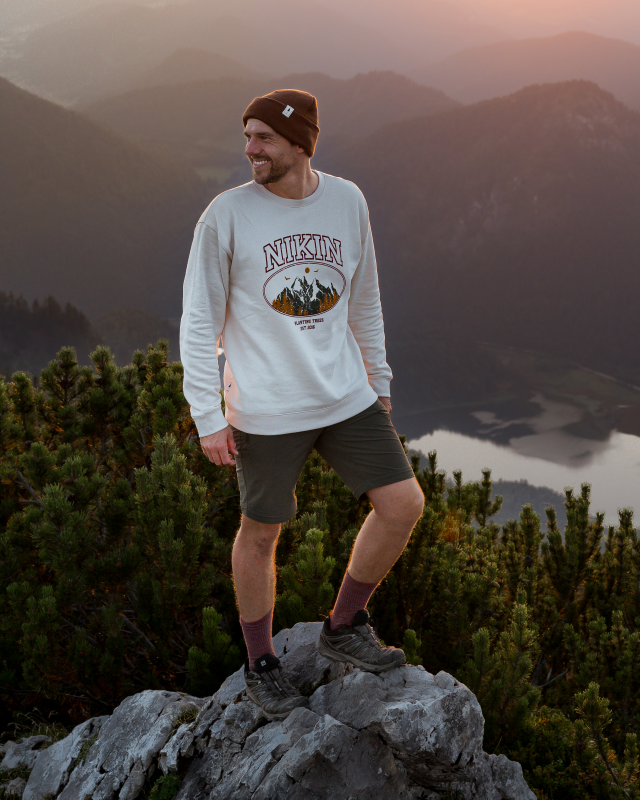Coffee: the elixir of life for millions of people. The invigorating hot drink is simply part of everyday life for many - some can hardly function without it. But not all coffee drinkers know what's behind this popular drink.
Coffee: the elixir of life for millions of people. The invigorating hot drink is simply part of everyday life for many - some can hardly function without it. But not all coffee drinkers know what's behind this popular drink.
Coffee in all its forms has become an integral part of our everyday lives - how would we get going in the morning without an invigorating sip? What seems so commonplace today came to us from the Orient. It all started in Ethiopia.
The coffee plant
The coffee bush, an evergreen from the Rubiaceae family, grew - and still grows - there. The bush, which grows to the height of a man, bears white flowers that open during the rainy season. As flowering is always triggered by rainfall, the coffee bush can bear flowers, ripe and unripe fruit at the same time. This makes harvesting the cherry-red coffee berries a job that cannot be done by machine. Instead, pickers harvest the fruits, inside of which lies a kernel consisting of two "beans".
From Ethiopia to the coffee houses of Europe
At some point, Ethiopian shepherds are said to have observed the encouraging effect of the fruit on their goats and dared to try it themselves. It can be assumed that it took several generations to refine the roasting process and the processing of the beans. From Ethiopia, coffee began its triumphal march around the world - initially the Arabs discovered the invigorating drink. Coffee came at just the right time for them, as Islam forbids intoxicating drinks such as wine. Consequently, our word "coffee" is one of the many Arabic words adopted into other languages and is derived from "qahwa".
And coffee consumption made its way from the Orient to the West - where it quickly became a cult. In 1669, the Turkish ambassador is said to have served coffee to court society in Versailles for the first time. Today, Germans, for example, drink around 164 liters of coffee per person per year, and even in the home of tea drinkers, namely the UK, coffee is gaining in popularity. The Italians drink even more coffee (no wonder, they invented the espresso), the Austrians (where you can find a coffee house on every corner) and - the Scandinavians! Above all, the Finns are particularly wakeful and consume almost twice as much coffee as the Germans.
Coffee cultivation: a global big business
This makes cultivation and processing an important sector. Ethiopia itself only contributes around 5% to the global coffee business, but this is due to the fact that Ethiopians mainly drink their coffee themselves. Around the world, coffee is grown in Brazil, Vietnam, Indonesia and Kenya, in fact everywhere in the tropical belt where the plant finds warmth and rain. In addition to the well-known Arabica variety, the Robusta species is also cultivated. At least 20-25 million families worldwide live from coffee cultivation, an estimated 100 million people. But do they make a good living from it? That is the question.
What are the working and living conditions like in coffee cultivation?
In most cases, coffee is cultivated under less than humane conditions. The countries where coffee is grown are all emerging or developing countries where human labor is cheap and even children have to lend a hand. Families who work on the plantations of large producers have to accept the conditions offered to them - and these include not only low wages, but also high levels of pesticide exposure. Self-employed smallholders who want to remain independent may be their own boss, but they have to pay for poor harvests and the consequences of climate change.
Fairtrade and eco labels and what's behind them
Consumers have a significant influence on the living and working conditions of these people, as there are now a number of approaches to producing coffee fairly and growing it in sustainable quality.
Anyone who buys coffee with a Fairtrade label knows that their morning coffee has been bought from the producer at a fair and guaranteed price. This makes farmers less dependent on the fluctuations and uncertainties of the market, promotes long-term business relationships and allows farmers to obtain advance financing through a futures contract.
Organic labels and seals of approval for humane working conditions provide information on whether coffee plants have been sprayed with pesticides or not, and whether workers on coffee plantations are treated well and earn a fair wage.
Our coffee should be worth a little more!
Of course, all this makes coffee more expensive. A little. But hand on heart, isn't the brown delicacy worth the extra expense? We can make a contribution with our shopping cart - and if we reach for a minimally packaged product and leave the coffee capsules behind, we are also doing something good for the environment.
Although we at NIKIN are primarily concerned with sustainable materials in the fashion industry and fighting against global deforestation, it is important to think sustainably in other areas of life too. We want to motivate people to rethink their lifestyle and possibly make it more sustainable. Coffee is simply part of everyday life. The wake-up drink is particularly popular in offices - so we also drink coffee from sustainable organic production that is certified by Fairtrade or Rainforest Alliance. We don't want to promote any particular brands here, but simply want to draw our readers' attention to sustainable, fairly grown coffee and its benefits. Just join in and have a coffee on it!























